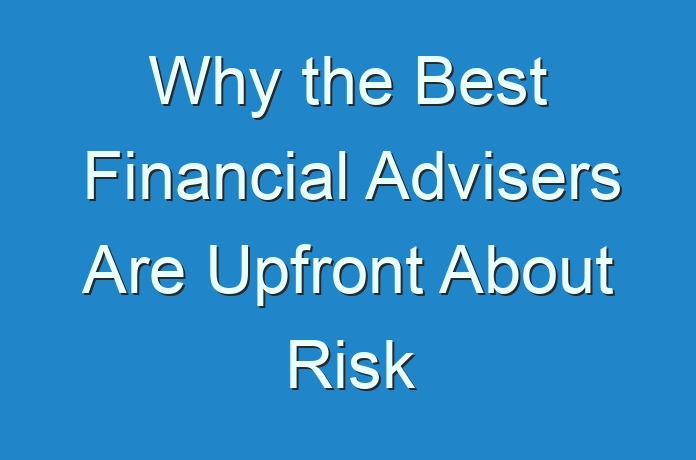
Financial advisers are everywhere you look. Online, in advertisements in financial magazines and seemingly at the roadside.
These could take many different forms:
- Firms of accountants which also provide financial advice
- Dedicated independent financial advisers who only perform advice work
- Sales people tied to particularly financial institutions and offer a limited range of products
- Specialists who advise on pension, tax or inheritance issues for people with complex issues.
Whatever form they take, there are certain attributes and techniques that the best financial advisers have mastered.
These financial advisers will find that they instill greater client confidence, greater rapport and develop a reputation for providing insightful guidance that clients truly value.
This article will set out one factor which all financial advisers should be aware of and working to develop and improve as they continue through their professional careers.
Being upfront about risks
Every client will have a few phrases that they wish their adviser will utter. Phrases such as “Don’t worry, this investment is a sure thing”, and “Your investment portfolio will certainly grow to a minimum of ..£x’.
It’s easy to see why. As customers, we want certainty, and if we’re paying for financial advice, which isn’t cheap, we may feel like we’re entitled to it.
However, no investments (beyond government-assured deposits such as bank deposits covered by the FSCS scheme, or National Savings & Investments products), are ‘safe’ or ‘guaranteed’. And therefore all good financial advice will be delivered against this background of uncertainty and doubt.
This presents a dilemma for advisers. They want to please their client, and deliver a confident outcome that their client will happily jump behind and support. But at the same time, they want to ensure that their advice complies to the FCA regulations and would be completely defensible were the stock market to collapse, as it occasionally does.
The first thing that the best financial advisers will do is to be honest with their customers. They won’t use words like ‘safe’ or ‘assured’ or ‘guaranteed’. They will also offer caveats alongside statements of confidence. They will never allow a client to make a decision on an assumption that an investment will certainly turn out a particular way.
While clients like certainty as it helps them plan for the future, a false impression of certainty can be damaging. What if a client goes ahead with early retirement, only to see their retirement income fall dramatically and having to feel the embarrassment as they apply to rejoin the workforce. Such an example is extreme, but paints a picture of the negative repercussions of delivering a window-dressed level of certainty to clients, masking the underlying volatility of investments.
Financial advisers simply need to think in terms of the long term. This is sensible to do, as their clients are also (hopefully) long term clients. Client satisfaction should therefore be seen in the context of satisfaction over the client lifetime, not just in the current meeting.
How does an expert satisfy their client in the long term? Well, they give them advice that protects them from AND prepares them for a stock market crash. A financial adviser looking only into the next year or two, might just cross their fingers that a stock market crash won’t occur in that period. An adviser looking into the next twenty will know it’s not a question of ‘if’, but ‘when’ a market crash will occur.
From that new perspective, the priority of the adviser to protect the satisfaction of the customer, will be in mentally arming their client for that eventuality. They can do this by pointing to charts showing the economic cycle of the stock market. They can also emphasize that the long term terms (5% – 7%) often cited as being the average return for the stock market, includes the effect of downturns, and therefore downturns do not need to be avoided, they simply need to be weathered.
This type of messaging will allow a financial adviser to refer back to those earlier conversations when the market crashes. This will not only reassure the client that this circumstance was fully anticipated by the adviser when the plan was being made, but it will also remove the ‘shock factor’ of experiencing a crash. Someone who is told to prepare for the worst will not be surprised when the worst finally arrives.





